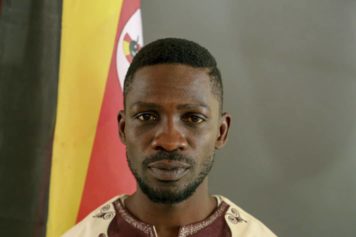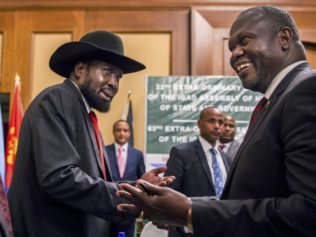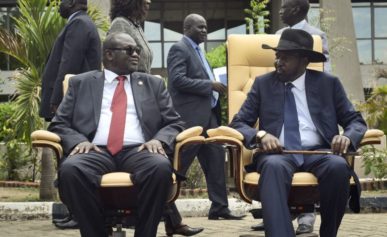African leaders who met in South Sudan to try to mediate the conflict that threatens to unravel the world’s newest country said talks had been “promising,” but admitted that it was not clear when a ceasefire might be agreed upon.
Following nearly two weeks of fighting that has left thousands dead, a high-level delegation, including Kenyan President Uhuru Kenyatta and Ethiopia’s Prime Minister Hailemariam Desalegn, arrived in the capital Juba to meet President Salva Kiir on Thursday.
Kenya had previously hosted talks that led to South Sudan’s independence in 2011, ending five decades of intermittent war with northern neighbor Sudan.
“The meeting was promising. We were able to agree on what needs to be done next, it is just a question of when,” an official present at the talks told the Guardian. He said the closed-door meeting had lasted for two hours, involving key cabinet members and international partners.
“Last time we were involved, we were able to successfully negotiate a deal,” said a Kenyan official present at the latest mediation round. “But this time the stakes are different: we are talking about safeguarding a fragile democracy. We’re hopeful but these things take time.”
The official added: “This is something African countries cannot look away from.”
The delegates were the latest in a stream of international dignitaries visiting South Sudan, including representatives from Norway and the United States, as well as eastern African neighbors Somalia and Djibouti. Delegations from China and the United Nations, which this week agreed to nearly double the number of peacekeeping forces to 15,000, are also expected in the following days.
In a Christmas day message, Ban Ki-Moon, the U.N. secretary general, said: “We know many of you are suffering from horrific attacks. Many of you have lost loved ones and are grieving. Innocent civilians are being targeted because of their ethnicity. This is a grave violation of human rights.
“We are strengthening the U.N. presence and will do our best to stop the violence and help you build a better future for all.”
The most recent – and most violent – fighting erupted after gunmen fired at the presidential palace on Dec. 15. A day later, shedding his customary black suit and matching hat, the president appeared on state television dressed in military fatigues and blamed his former deputy, Riek Machar, for attempting a coup.
Fighting spread rapidly across the country, pitching Nuers against Dinkas, the ethnicities of Machar and Kiir respectively.
Ethiopia’s foreign minister, Tedros Adhanom, who was also at the talks, said the meeting had been “very constructive and very candid.”
He said: “The issues we discussed were, among others, the cessation of hostilities, an immediate start of dialogue to settle the issue politically, the detainees who were suspects of the coup, and the fourth is the humanitarian crisis.”
Source: The Guardian


